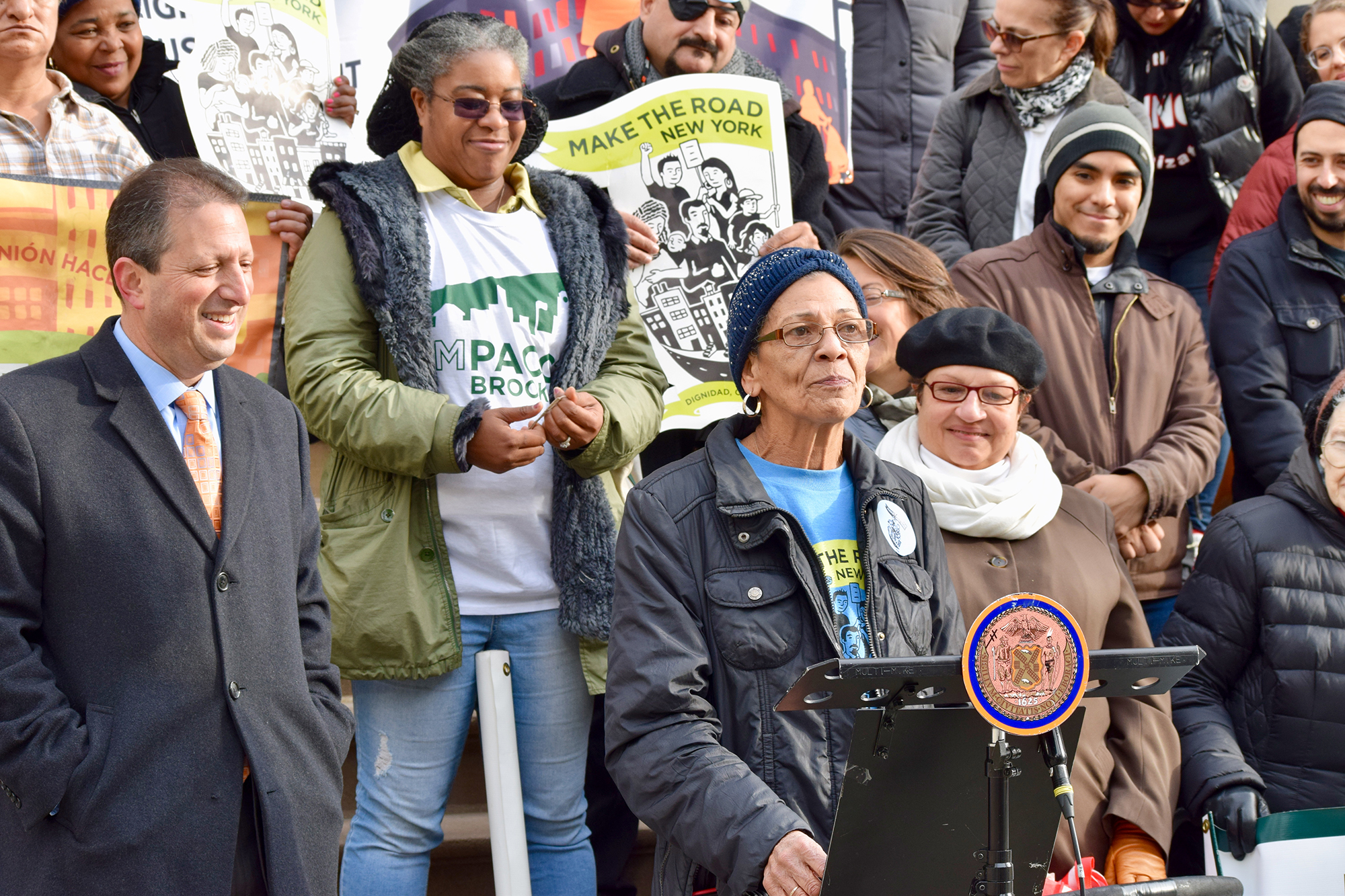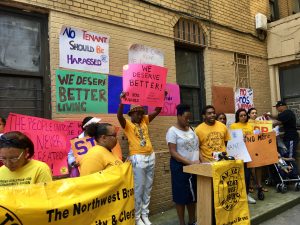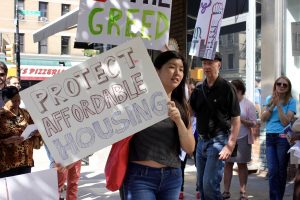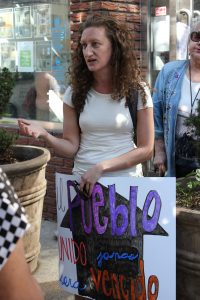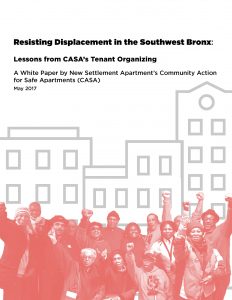VICTORY: City Council to Pass Certificate of No Harassment Legislation
The Coalition Against Tenant Harassment is thrilled that Certificate of No Harassment (CONH) legislation passed in City Council today. An expansion of CONH beyond the Clinton Special District has been a goal in numerous community campaigns for decades, and our coalition in particular has organized and advocated for the past several years to make this program a reality.
Throughout New York City, far too many tenants face persistent harassment from landlords determined to drive them out in order to increase profits and deregulate affordable apartments. CONH will help to proactively prevent displacement by creating a strong disincentive for tenant harassment – essentially flipping the current incentive structure on its head. Where landlords have seen tenant harassment as a means to increase rents, the new CONH law will turn it into an obstacle to higher profits. And the simultaneous expansion of the definition of harassment in Intro 1721 will help to ensure that the real ways in which tenants experience harassment are acknowledged and counted in this and other programs and tools.
“In my community, too many tenants face harassment from landlords who want to push them out, renovate their apartments, and double the rent. In my building, where I have lived for 25 years, this is exactly what the landlord has done. This is why the Certificate of No Harassment is so important. This bill gives real voice to tenants and gives more weight to the complaints we make against our landlords,” said Maria Cortes, a member of Make the Road New York.
“Hard working people who are making the best with the lot they’ve been handed in life are working every day to make sure they cover the most important expenses in their household. But even so they are getting no repairs, and even living without basic services like heat and hot water. Hot water is a basic necessity for bathing and getting ready for work, or bathing after a long day, but people are going without because of deliberate landlord neglect. The Certificate of No Harassment will give us one more tool to hold our landlords accountable, and make sure tenants are able to organize for their rights,” said Sergio Cuevas, tenant leader & board member from the Northwest Bronx Community Clergy Coalition.
“As the leader of our housing team at the Fort Tryon Jewish Center, a member of Faith in New York, and a tenant who has experienced harassment myself, my community and I knew that we could not sit quietly and be complicit in the oppression and degradation of our neighbors so that we can enjoy a comfortable community. We will stand by our neighbors, and use the resources we have to help protect them. That’s why we started a petition to raise awareness in our own community about tenant harassment, found that it had wide support across faith and ethnic communities. We are excited to celebrate the passage of this bill and are dedicated to doing our part, knocking on doors, and doing what we all need to do to build the beloved city!” said Avi Garelick, housing team leader at Fort Tryon Jewish Center and member of Faith in New York.
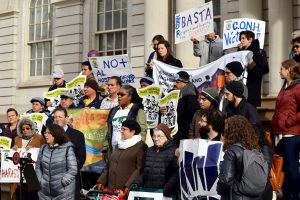 We thank Council Member Brad Lander for tirelessly championing the Certificate of No Harassment legislation. We thank Council Member Jumaane Williams for his support and consistent commitment to tenants’ rights; Speaker Melissa Mark-Viverito for her leadership; and all of the Council Members who co-sponsored the legislation, voted for it, and helped bring this crucial new protection to the tenants of New York City. We also appreciate the effort and attention HPD put into developing this legislation, and we look forward to working with them to successfully implement this new program.
We thank Council Member Brad Lander for tirelessly championing the Certificate of No Harassment legislation. We thank Council Member Jumaane Williams for his support and consistent commitment to tenants’ rights; Speaker Melissa Mark-Viverito for her leadership; and all of the Council Members who co-sponsored the legislation, voted for it, and helped bring this crucial new protection to the tenants of New York City. We also appreciate the effort and attention HPD put into developing this legislation, and we look forward to working with them to successfully implement this new program.
This is a victory for the tenant movement, and for the thousands of New Yorkers who have fought and will continue to fight for the right to stay in their homes and communities.
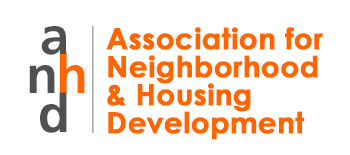 ANHD 2016 Building the Community Development Movement
ANHD 2016 Building the Community Development Movement

